He has just won a US government auction for a trove of bitcoins. His “university of heroes” is preparing to induct a new batch of would-be entrepreneurs. And his plan to split California into six states is nearing crunch time.
It is a busy summer for Tim Draper.
The venture capitalist and entrepreneur is advancing a quixotic agenda to ”free” Silicon Valley and the developing world from what he considers the dead hand of government and fusty institutions.
The investor in Skype and Hotmail is using his considerable fortune and marketing savvy to promote a vision of liberated markets and human potential which is partly inspired by Harry Potter and the X-Men.
“You're best off when you're part of the centre of the creative universe,” Draper, 55, told the Guardian in an interview at his headquarters in San Mateo, in the heart of Silicon Valley.
The “Draper University of Heroes”, a crash course in entrepreneurship which opened last year, draws partly on ideas from Harry Potter's Hogwarts school and the X-Men's academy for mutants, he said.
“It's a little bit like each of them. What we do here is create a school that is very different to any school that you would see anywhere. We are the only one on the planet that teaches future rather than history.”
Draper has just made headlines for another unorthodox move: buying 29,656 bitcoins seized last year from the illegal online drug market Silk Road.
US Marshals planned to sell the digital currency off in nine blocks to different bidders in a 12-hour auction on Monday. Draper revealed on Wednesday that he beat 44 rival bidders and scooped the whole lot.
“Bitcoin frees people from trying to operate in a modern market economy,” he said in a statement.
The plan is to partner with bitcoin exchange Vaurum, a startup, and use the bitcoins to launch trading platforms in emerging markets vulnerable to volatile currencies and weak banking institutions. Draper and his son Adam were early investors in Vaurum.
Draper declined to reveal how much he paid but with bitcoin prices hovering around $650 it was assumed to be tens of millions of dollars. He lauded the digital currency – which has been on a rollercoaster the past year – as a revolutionary financial instrument.
Whether the investment pays off, the move was classic Draper: stake a claim in something new and let the world know about it.
Armed with a degree in electrical engineering from Stanford and a Harvard MBA, as a young man he followed in the footsteps of his father and grandfather by founding a venture capital firm, Draper Fisher Jurvetson, and plunged into the 1990s dotcom boom. “I came up with Hotmail's viral marketing idea,” he said.
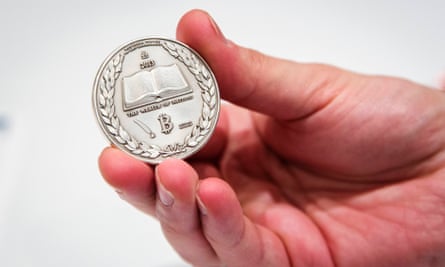
Speaking to the Guardian before the bitcoin auction, Draper on first impression appeared the classic VC: tall, sleek, grey suit, blue shirt. Then you notice the vivid, multicoloured tie, the collar askew and frank admission he had no idea what the Guardian was.
What he does know, he said, was the value of Silicon Valley: “It has become a magnet for the greatest entrepreneurs in the world.”
The teenagers and twentysomethings who flocked here with dreams of startups were heroic, he said, in risking failure and humiliation. “They know the odds but want to make a big impact on society.”
He set up the non-accredited university – a nine-storey tower emblazoned with his name in downtown San Mateo – to jumpstart would-be entrepreneurs aged 18 to 28, he said. “They come with the spark, we ignite it.”
The online course costs $850. Tuition for the seven-week residential programme costs $9,500. In addition to futurology the curriculum includes “idea generation”, “lean startups”, “pivoting” and “pitch workshops”. A section called “special powers” teaches lie detection and coding. A survival weekend teaches first aid and suturing. Portraits of Steve Jobs and Elon Musk flank the entrance. There are signs saying “no limits” and “hero city”.
Students are grouped into eight teams of five with banners and livery that evoke Hogwarts. JK Rowling's magicians' academy had only four teams, or houses, noted Draper, but he preferred smaller, nimbler units.
Bean bags were favoured over desks because young people concentrated better when they were looking up, not down, he said. “They have different circadian rhythms.”
Breakthroughs in science, medicine and economics would come from such people, he said. Draper disputed the notion that many Silicon Valley startups ended up designing apps to enhance the convenience of privileged young people. “So now a 22-year-old can use Uber and get around much quicker. He'll have more time to cure cancer,” he said.
Draper, who likes the nickname Riskmaster, has provoked curiosity and scorn with a separate project: a ballot initiative to separate California into six smaller states. The current state is bureaucratically cumbersome, unwieldy and chasing away businesses, he said. “The reason is California is acting as a monopoly. The (state) government isn't taking care of its people.”
The solution to poverty and creaking infrastructure was to enhance local autonomy and market forces, he said. As one of the envisaged six states Silicon Valley would be one of the richest in the US. The newly liberated central valley would be one of the poorest.
Draper has until 18 July to collect 807,615 signatures of registered voters to put the initiative on the ballot.
Most commentators have dismissed the idea as daft but Draper expressed confidence he would get the signatures – and win the vote. “We'll probably go for 2016. I think by then the odds will be in our favour.”
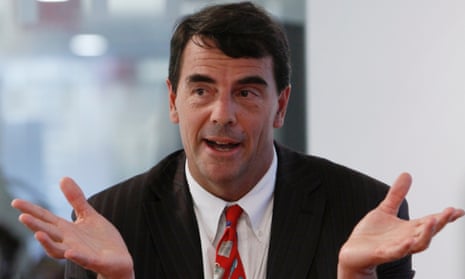
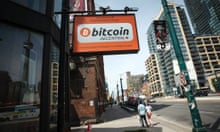
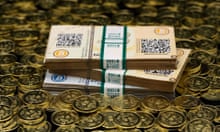
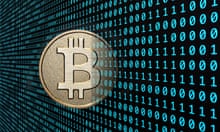
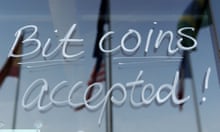


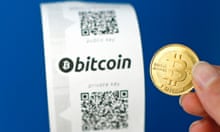

Comments (…)
Sign in or create your Guardian account to join the discussion